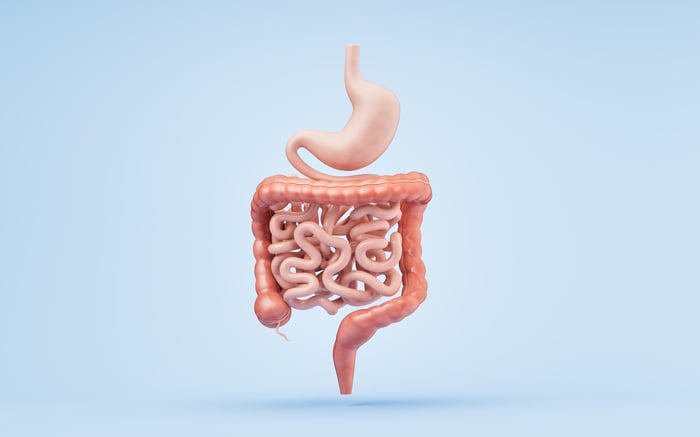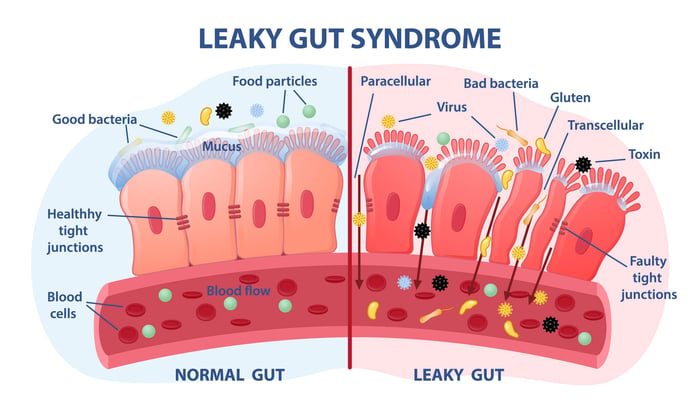Your gut is more than just a place for digesting food—it’s a complex system that helps keep your entire body running! Today we’re going to explore how your gut works, why it’s so vital, and how you can keep it performing at its best.
What is the Gut?

Imagine your gut as a long, twisty tube stretching from your mouth through your torso. This tube comprises several parts, including your stomach and intestines.*†
Its main job is to break down food into smaller pieces so your body can absorb the nutrients and create the energy needed to stay healthy and active.*†
Why Is Your Gut So Important?
Your gut plays a crucial role in supporting your health by acting as a protective barrier for your body.
It’s like a gatekeeper that ensures only the good stuff gets through while keeping harmful substances at bay. Here’s how it performs this essential function:*†
- Digest Food: Your gut breaks down what you eat into tiny bits so your body can use it.
- Absorb Nutrients: It absorbs important vitamins and minerals from your food to keep you healthy.
- Protect Against Germs: Special cells in your gut help defend against harmful germs and bacteria.
Leaky Gut: What Is It?

Sometimes, the lining of your gut can become damaged, leading to a condition called “leaky gut.”
This means that the gut lining becomes more permeable, allowing unwanted substances like bacteria and toxins to enter your bloodstream. This can cause issues such as bloating, fatigue, and even more serious health problems.*†
How to Spot Leaky Gut:*†
- Chronic diarrhea and bloating
- Joint Pain
- Inflammation
- Fatigue or difficulty concentrating
- Mood imbalances
The Gut-Immune System Connection
Your gut and immune system are closely linked. A healthy gut helps train your immune system to identify and combat harmful invaders. When your gut is in good shape, it supports your immune system in supporting your health and fighting off illnesses.*†
Tips to Boost Your Gut Health:*†
- Eat a Balanced Diet: Load up on fruits, veggies, whole grains, and lean proteins.
- Proper Nutrition: Eat foods shown to benefit the health of intestinal cells. There’s research showing benefits for intestinal cell health with quercetin-abundant foods.
These include:
- Apples
- Grapes
- Onions
- Broccoli
- citrus fruits
- green tea
- Kale
- blueberries.
- Quercetin supplements are also a great option.
- Stay Hydrated: Drink plenty of water to keep your digestive system running smoothly.
- Include Probiotics: These good bacteria, found in foods like yogurt and kefir, help maintain a healthy gut flora.

The Gut-Brain Connection
Your gut and brain communicate with each other, meaning that what happens in your gut can impact your mood and mental well-being. If your gut isn’t healthy, you might experience feelings of stress or anxiety.*†
Tips to Keep Your Gut and Brain Happy:*†
- Manage Stress: Engage in relaxing activities like reading, meditation, or walks.
- Allergen-free Diet: Avoid or remove certain foods or ingredients so you can find out what you might be sensitive to.
- Vital Supplements: Formulas like Digestive Wellness and Leaky Gut Health may help support a healthy gut.





